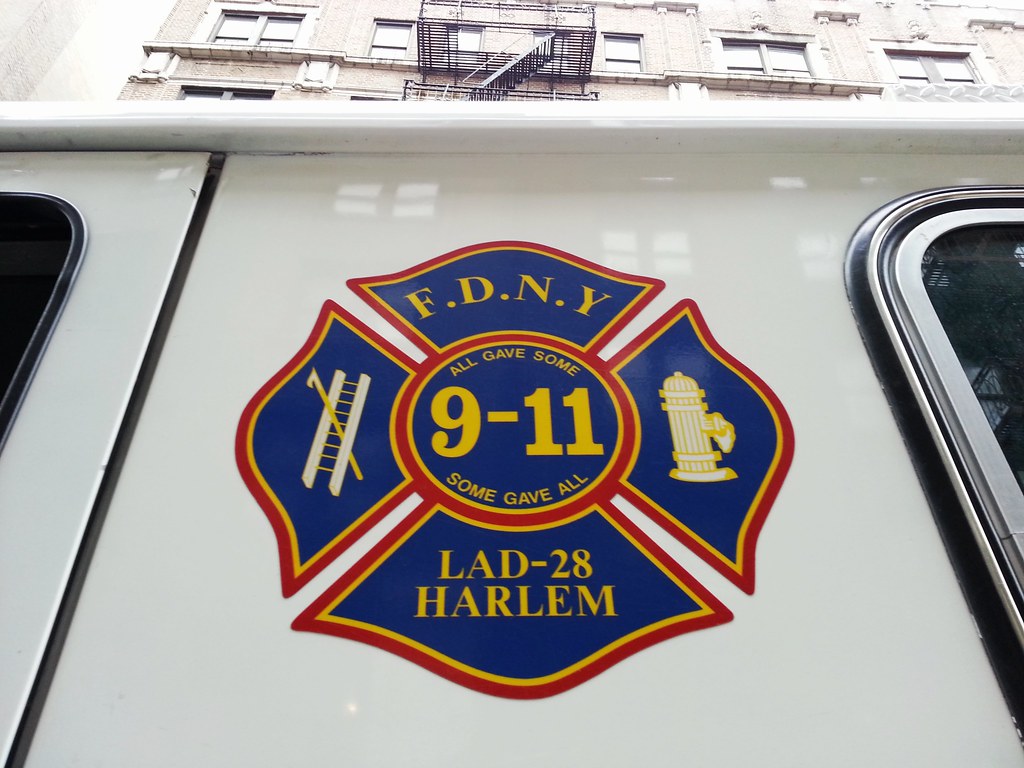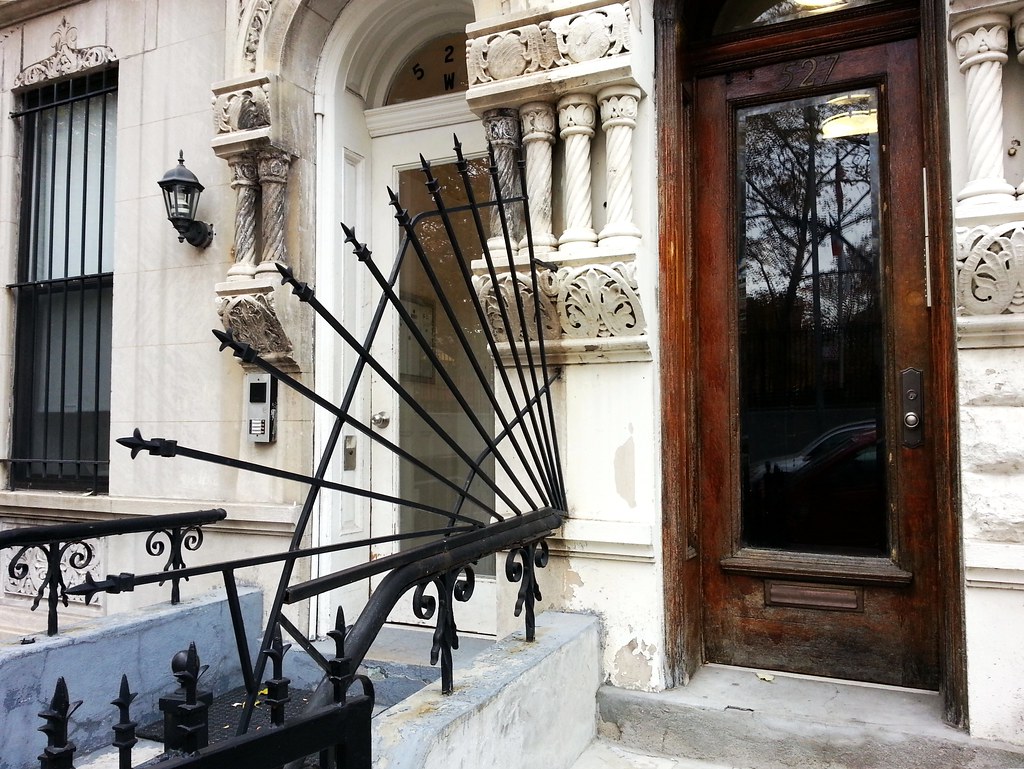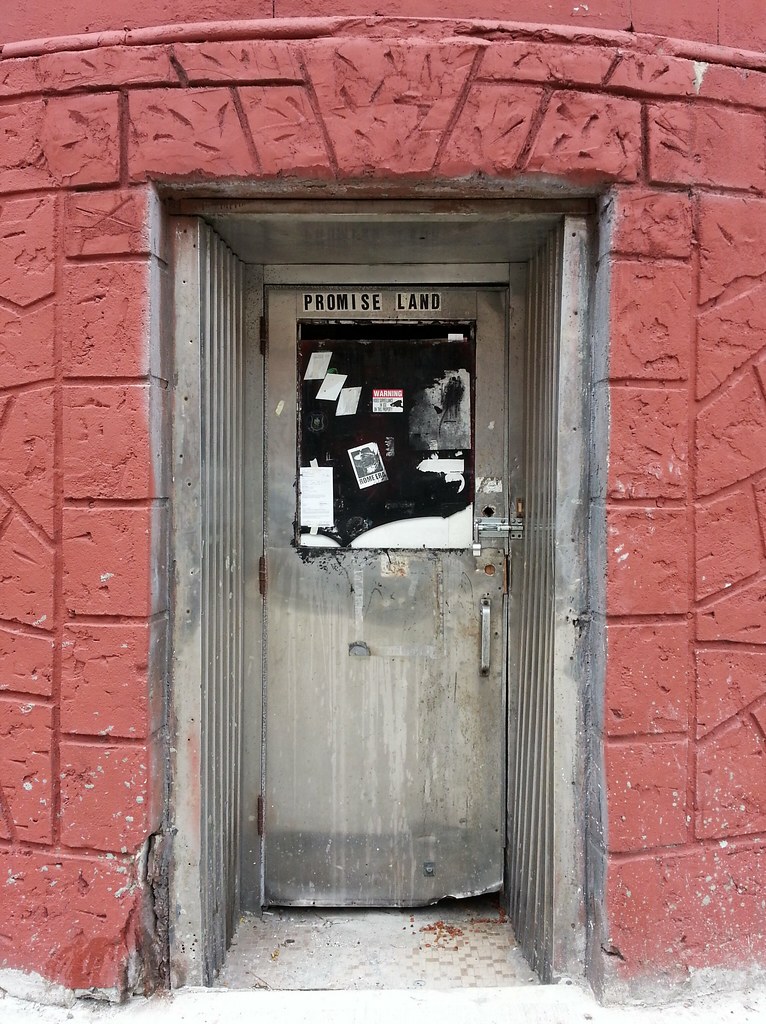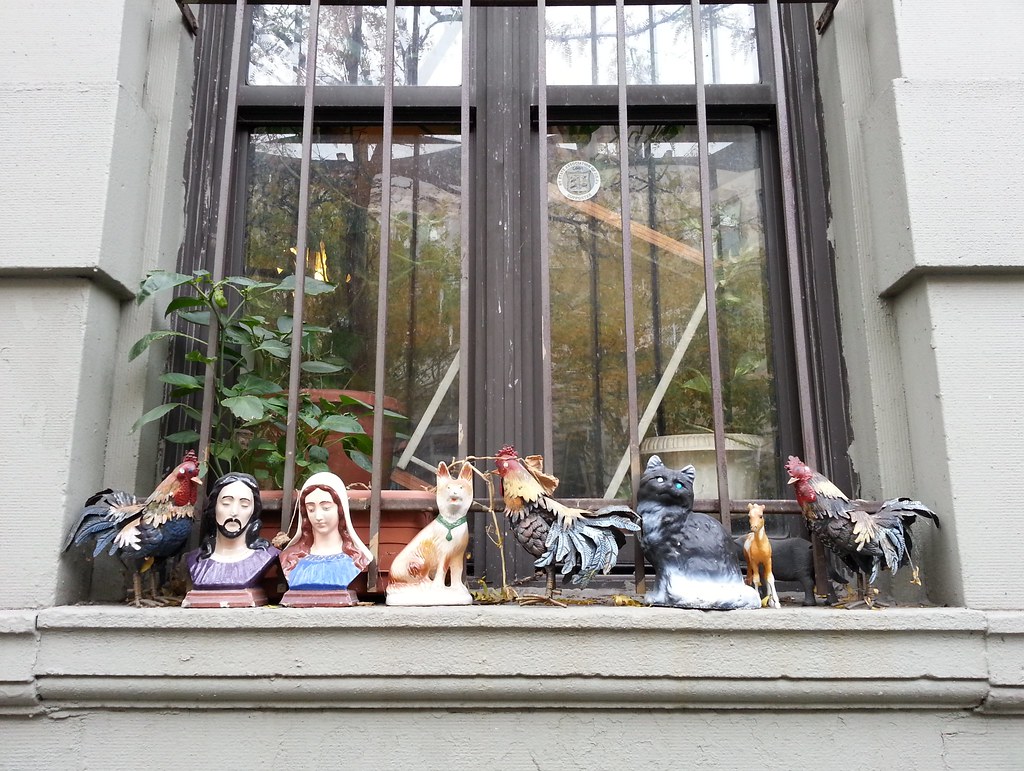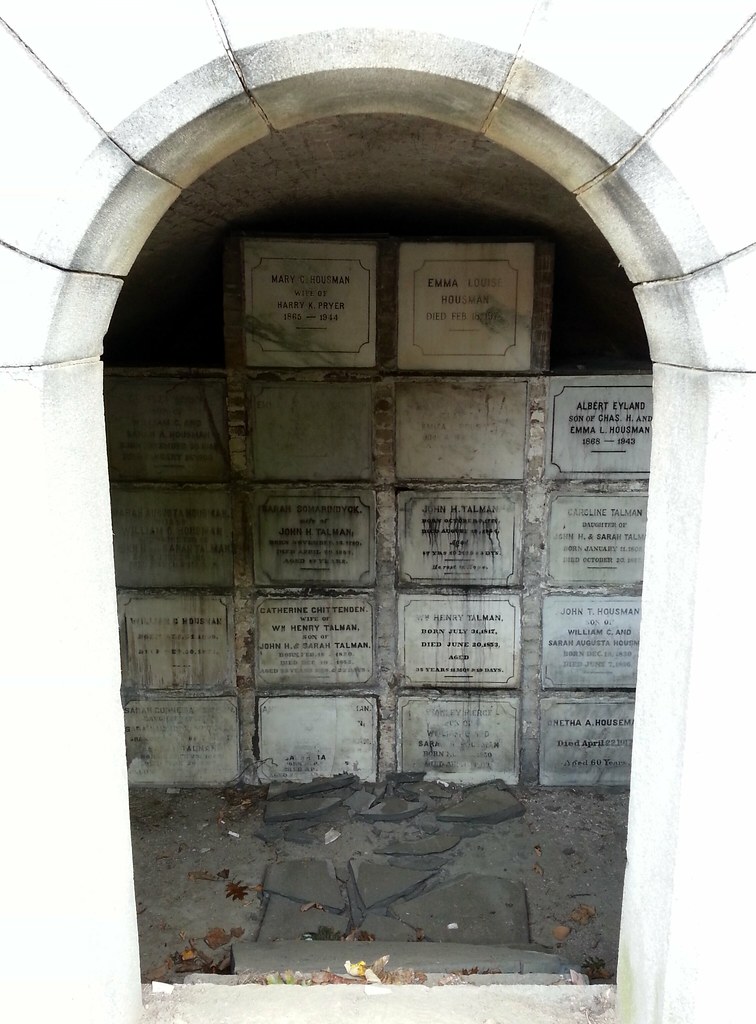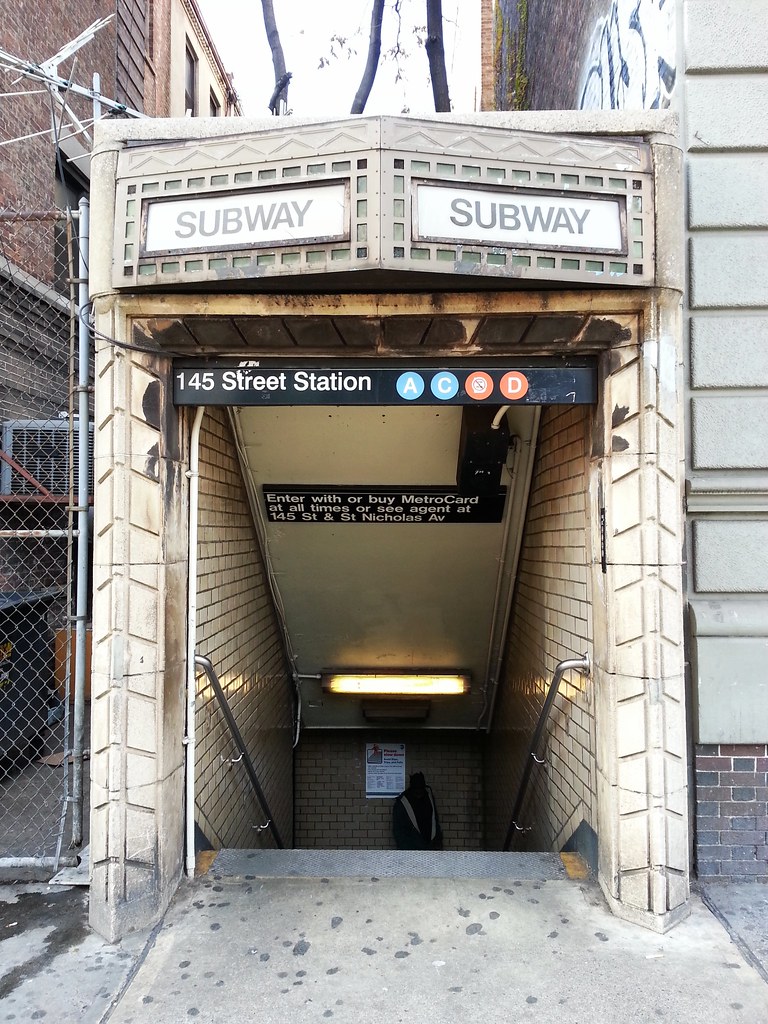

This was Alexander Hamilton's country home, completed in 1802, just two years before Hamilton was fatally wounded in a duel with Aaron Burr. The house has been moved twice since it was built, most recently in 2008, when it was jacked up and slid out of the cramped quarters where it formerly stood and then rolled down the middle of the street (around the corner and about a block down the hill) to its current site. You can see video of the move here and here, and a step-by-step visual explanation of the process here.
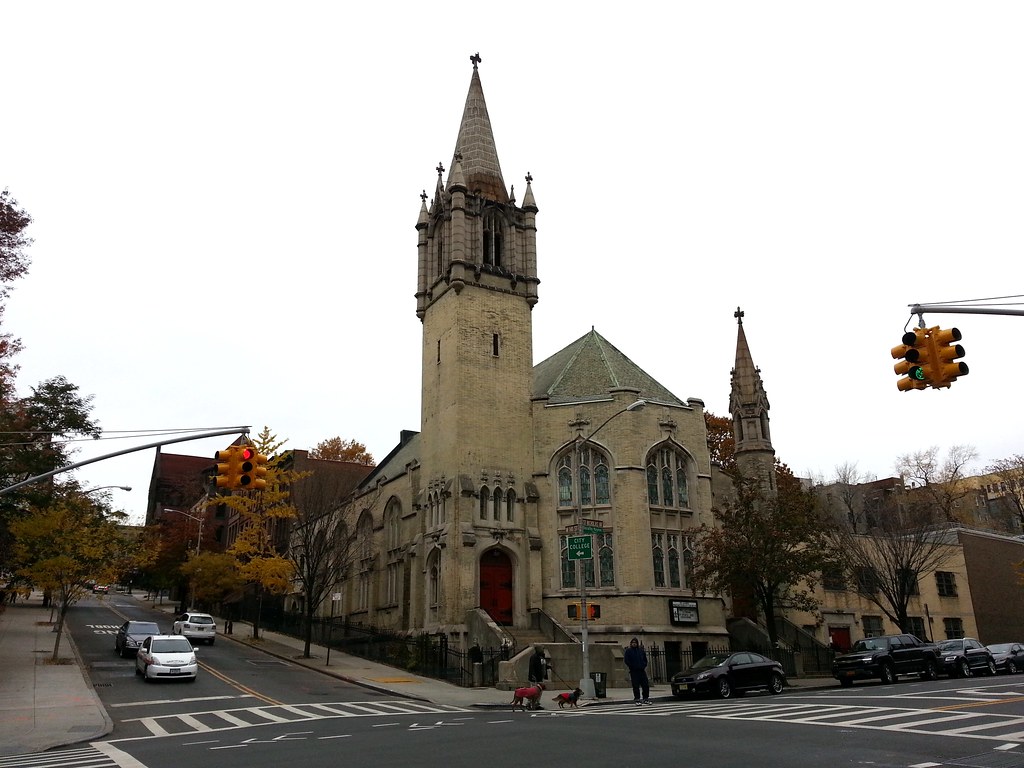
This "bit of Neuschwanstein fantasy", built in 1904-05, was originally the Lenox Presbyterian Church.

on what looks to be the future site of a big new apartment building

Built for James A. Bailey (of Barnum and Bailey) in 1886-88, this "turreted medieval-style house of limestone" boasts still-intact interiors (photos and video) designed by Joseph Burr Tiffany, a cousin of Louis Comfort Tiffany. The current owners, who bought the place in 2009 for a mere $1.4 million, have done some serious restoration work. The scaffolding you see above, in place for at least two and a half years, was finally taken down shortly after I passed by.

Trinity Church Cemetery is known as the last active cemetery in Manhattan (although the New York Marble Cemetery, whose last interment was in 1937, still has a policy allowing descendants of the original vault owners to be buried there if they so choose). Trinity is running out of room, however, and "has stopped selling plots, offering burial only in the most 'extraordinary circumstances,' or to people with long-held reservations", but space is still available in aboveground crypts (like those visible in the background of this photo).

Oliver Evans, "whose pioneer work in the application of high pressure steam to locomotion and industry, with the introduction of automatic machinery in flour milling; whose creative writings on technical and scientific subjects, and enterprise as a manufacturer and promoter of useful inventions place him in the front rank of those who laid the foundations of America's greatness as an industrial and scientific nation".
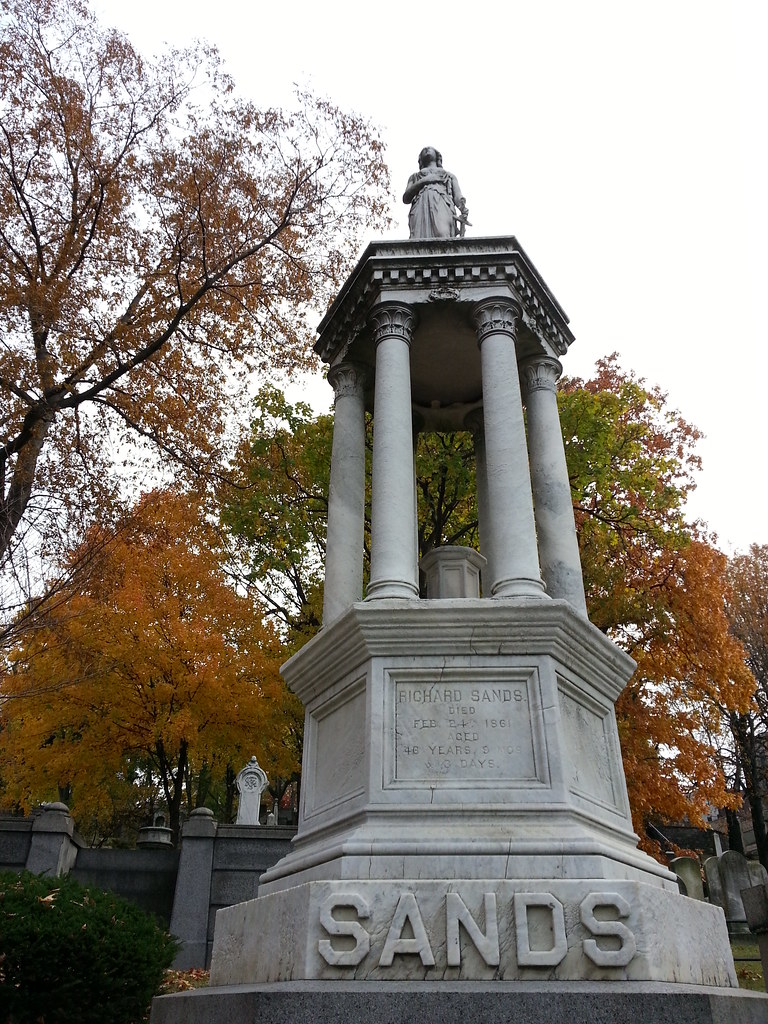
A marble bust of Mr. Sands (a.k.a. the "ceiling-walker", the "human fly", and the "circus king of old New York") was long ago stolen from the now-empty pedestal at the center of this monument.

As we learned back in the early days of this walk, former mayor Ed Koch convinced Trinity Church Cemetery to label a nearby entrance "The Jewish Gate" so he could feel more comfortable being buried in a non-Jewish cemetery. The rabbis he consulted on this matter also suggested having rails installed around his plot (presumably as a barrier between him and the non-Jewish graves), but he appears not to have heeded that advice.
Koch designed his own headstone and had it installed while he was still alive, with only the dates of his birth and death left to be carved. According to the NY Times, "He laid out precise instructions for the design and the inscriptions*, and even inspected it himself when it was completed in 2009." After he passed away in February, however, the engraver made a mistake while etching his birth year, accidentally transposing two digits (carving 1942 instead of 1924). Shortly after the error was noticed (and reported with gusto in the news media), the engraver returned to the cemetery and corrected the date. Only on close inspection can you see where the erroneous digits have been filled in.
* I find the attribution of the quote near the middle of the monument needlessly divisive: "Daniel Pearl, 2002, just before he was beheaded by a Muslim terrorist."

This dramatic new building will provide 124 units of affordable housing, 20% of which will be reserved for the formerly homeless, and its bottom two floors will be occupied by the Sugar Hill Children's Museum of Art & Storytelling.
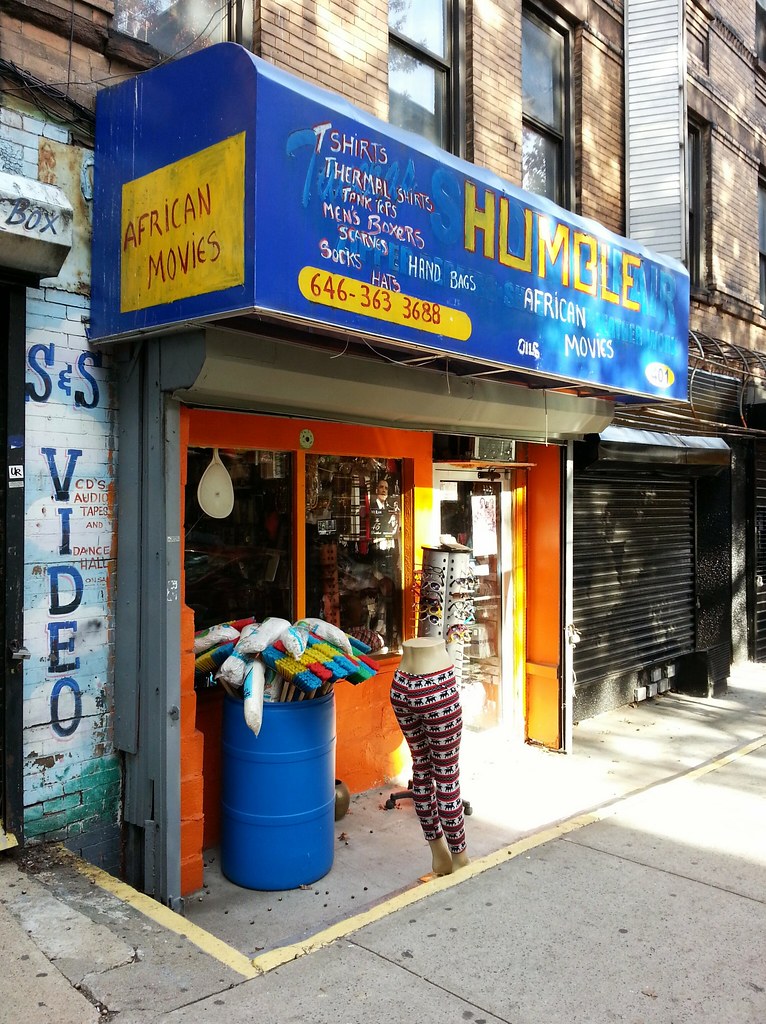
Takes me back to Day 1.
And in case you were wondering what the S's stand for in S&S Video...

This grain elevator church opened in 1969, home to a congregation founded in 1916 by West Indian immigrants. It was designed by the Cypriot architect Costas Machlouzarides, who is also responsible for the "elongated mosaic lozenges" of the Greater Refuge Temple.
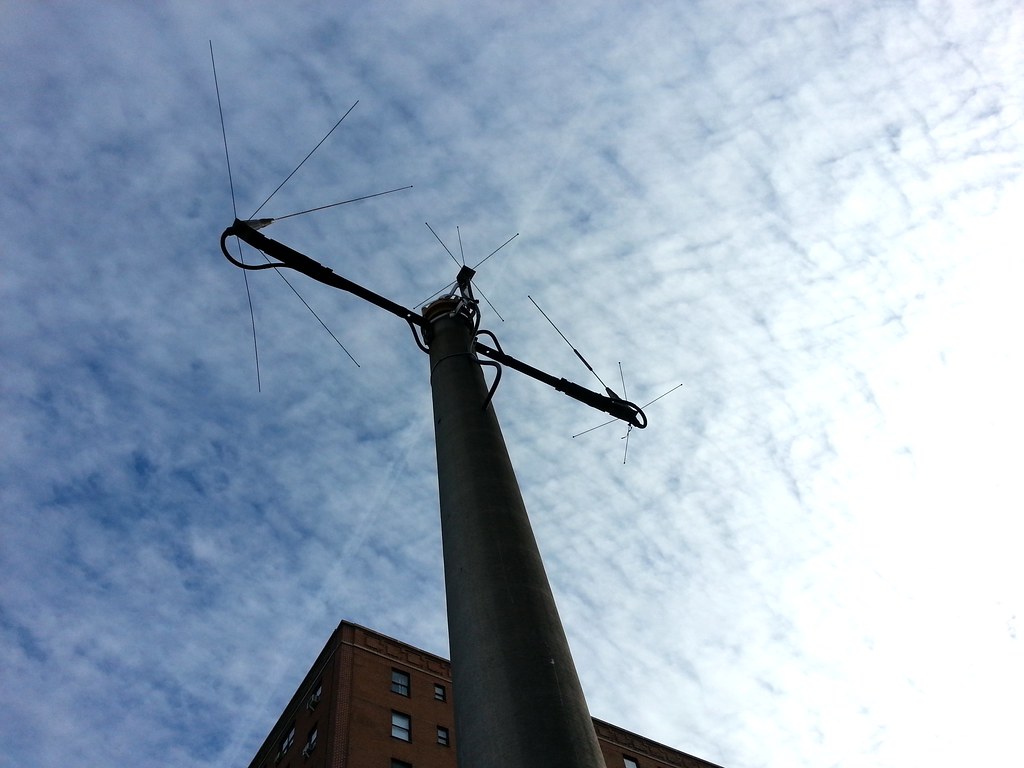
This pole is installed on top of a subway grate above the 145th Street A,B,C,D station. I think those antennas might be part of a communications system that allows police, fire, and EMS radios to work in the subway.
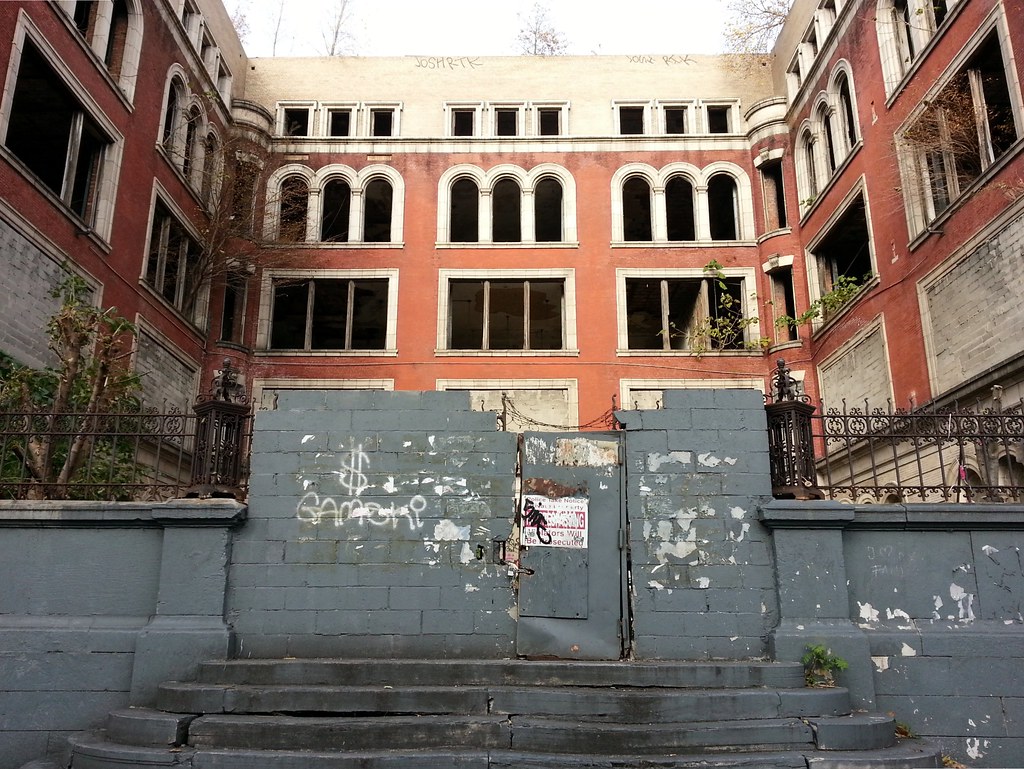
This long-vacant school, designed by Charles B.J. Snyder, has been closed since 1975. The Boys and Girls Club of Harlem bought the property in 1986 and has just let it deteriorate ever since. (You can see some beautiful photos of the decaying interior here.) Back in 2010, the Boys and Girls Club claimed that the building was too dilapidated to be salvaged and would have to be demolished to make redevelopment of the site financially feasible, but now the club is talking about preserving the structure, turning it into a new hub for the club along with 81 mostly low-income residential units.
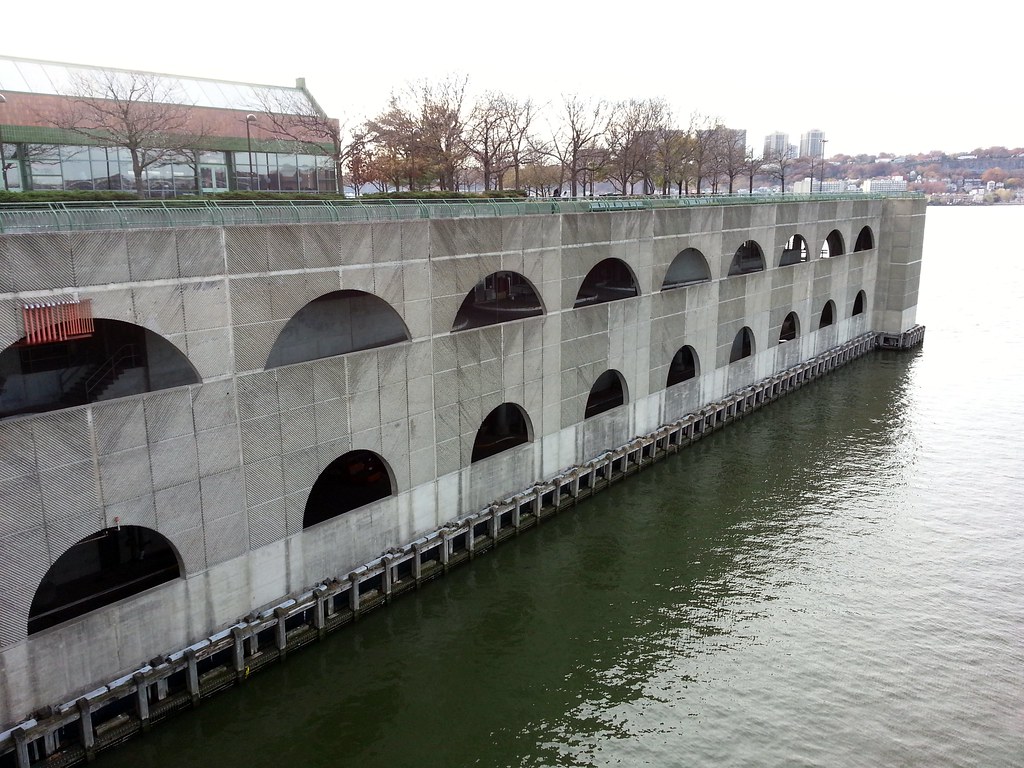
A 28-acre park built on top of a sewage treatment plant! (Aerial view here.)
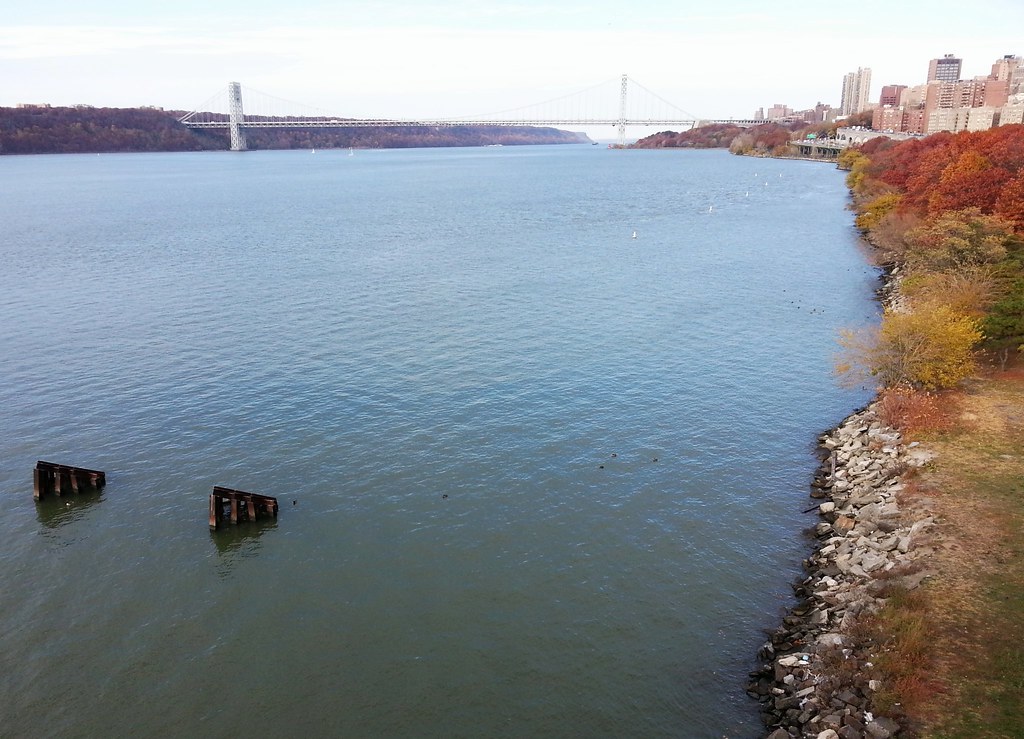
The view north from Riverbank State Park with the George Washington Bridge in the distance
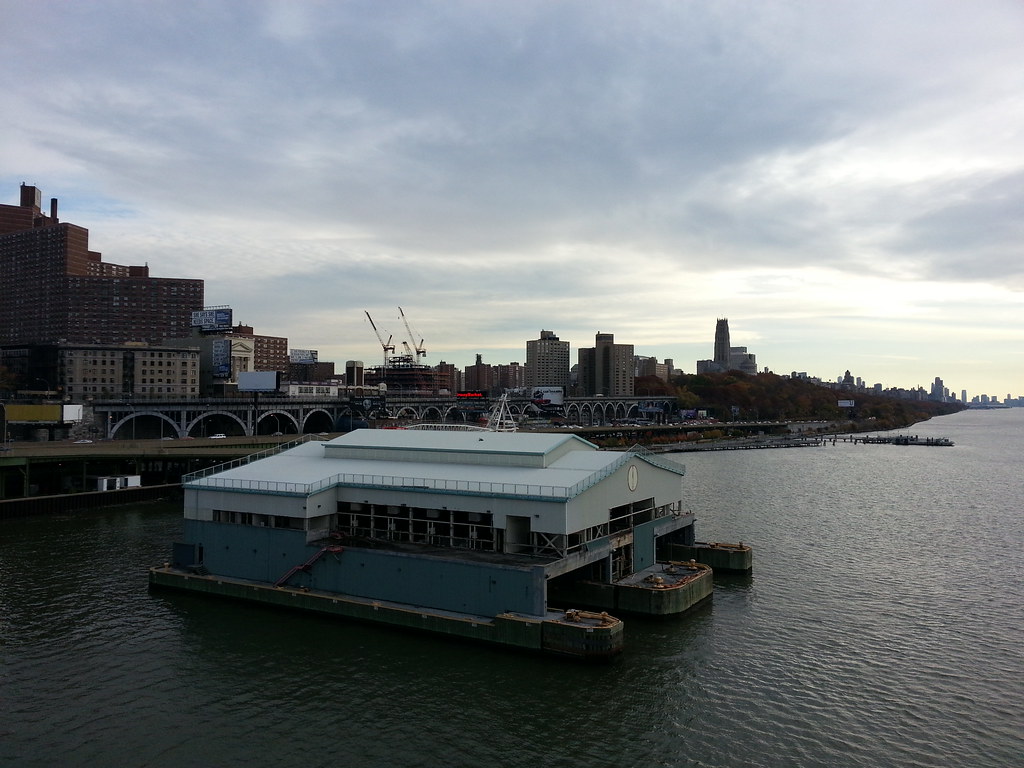
This vacant facility was once used to transfer garbage from trucks to barges bound for the now-closed Fresh Kills landfill in Staten Island. The New York chapter of the American Institute of Architects recently held a design competition to generate ideas for what could be done with this site in the future. You can see the winning proposals here.
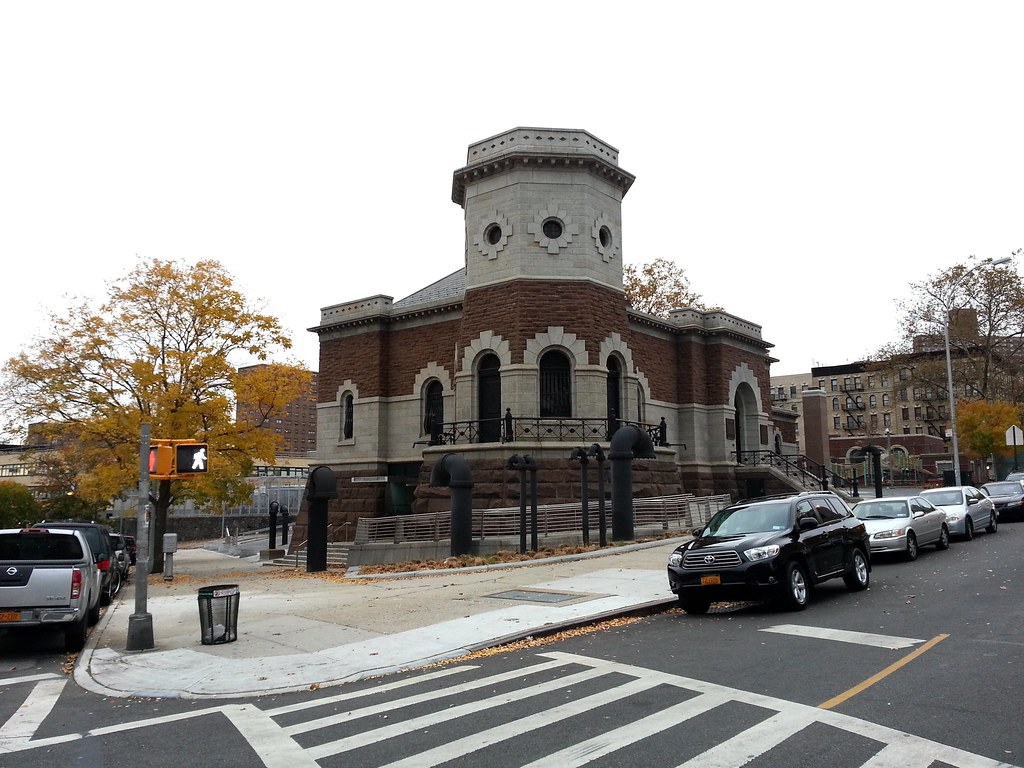
Completed in 1890, this structure ("an unlikely fantasy in the middle of a colossal project of utilitarian engineering") was built atop the connection between the New Croton Aqueduct and the now-defunct Old Croton Aqueduct. The building sat vacant for over two decades after the city began rerouting the water supply lines around it in 1984, but it was put back into use in 2006 — as a 192-seat performance space.

This is one of the more than 1,000 grotesques and gargoyles that adorn the neo-Gothic buildings of City College. You can see photos of a bunch of them, as well as some beautiful shots of the campus, here.


